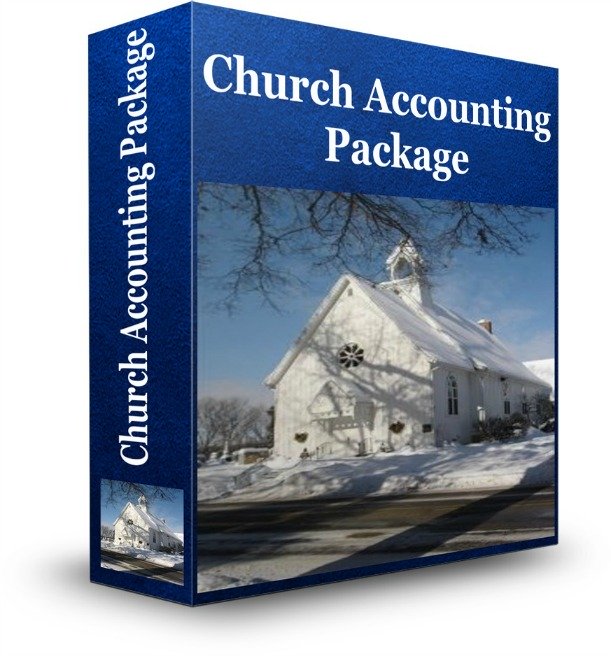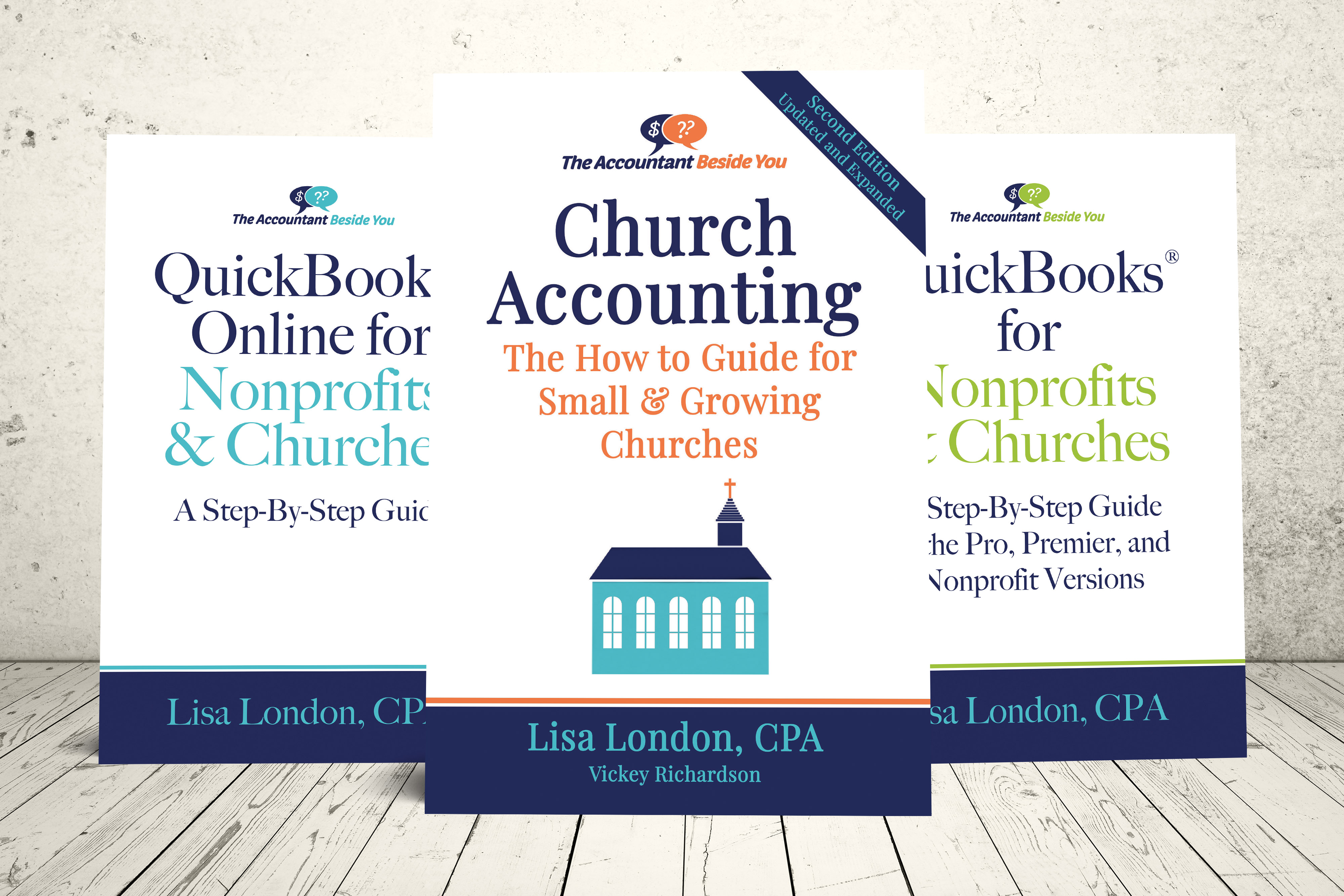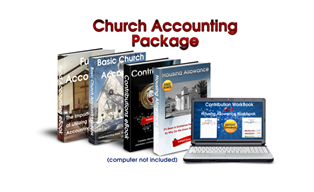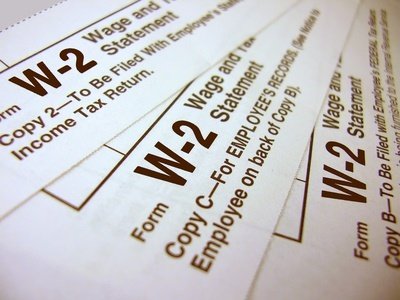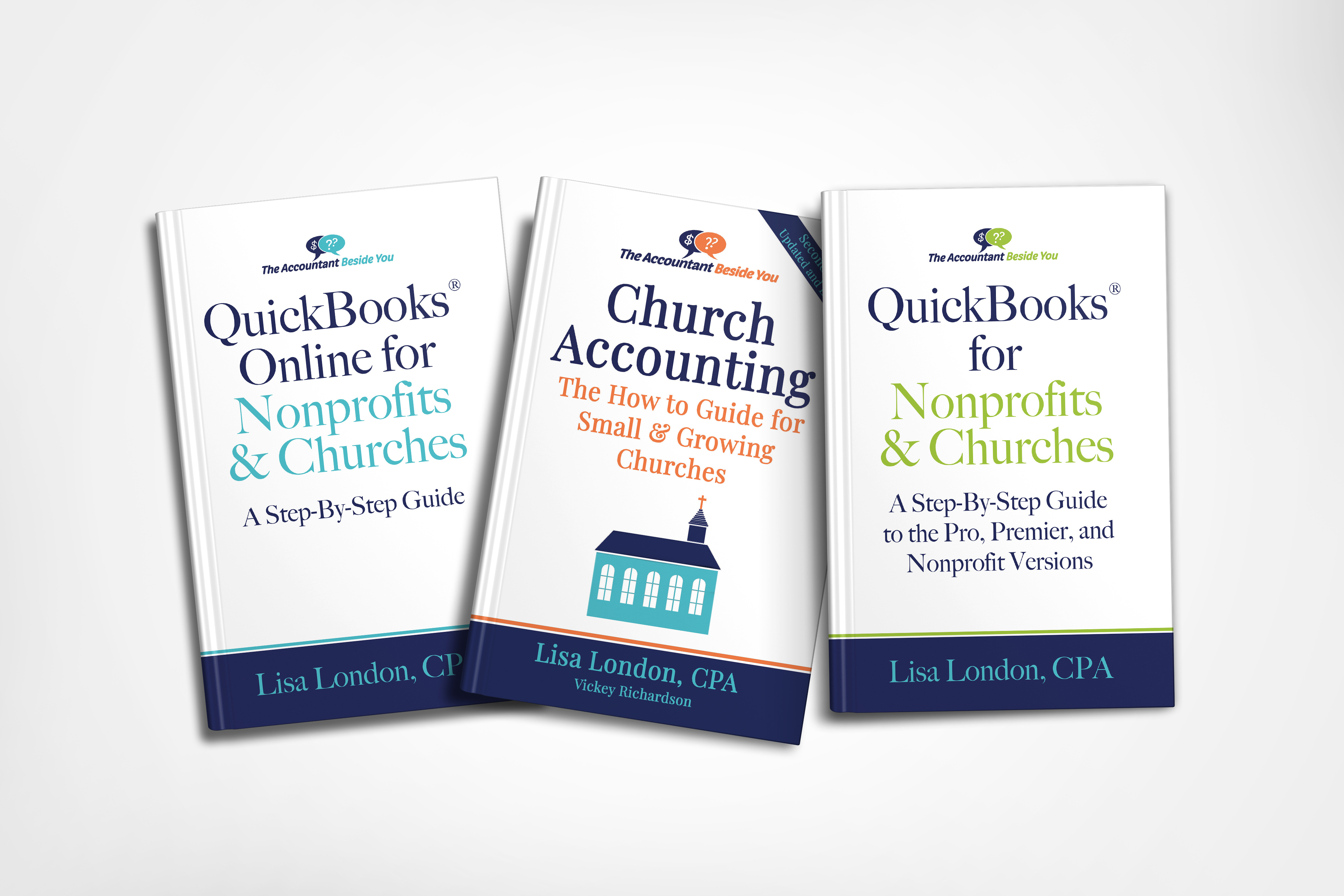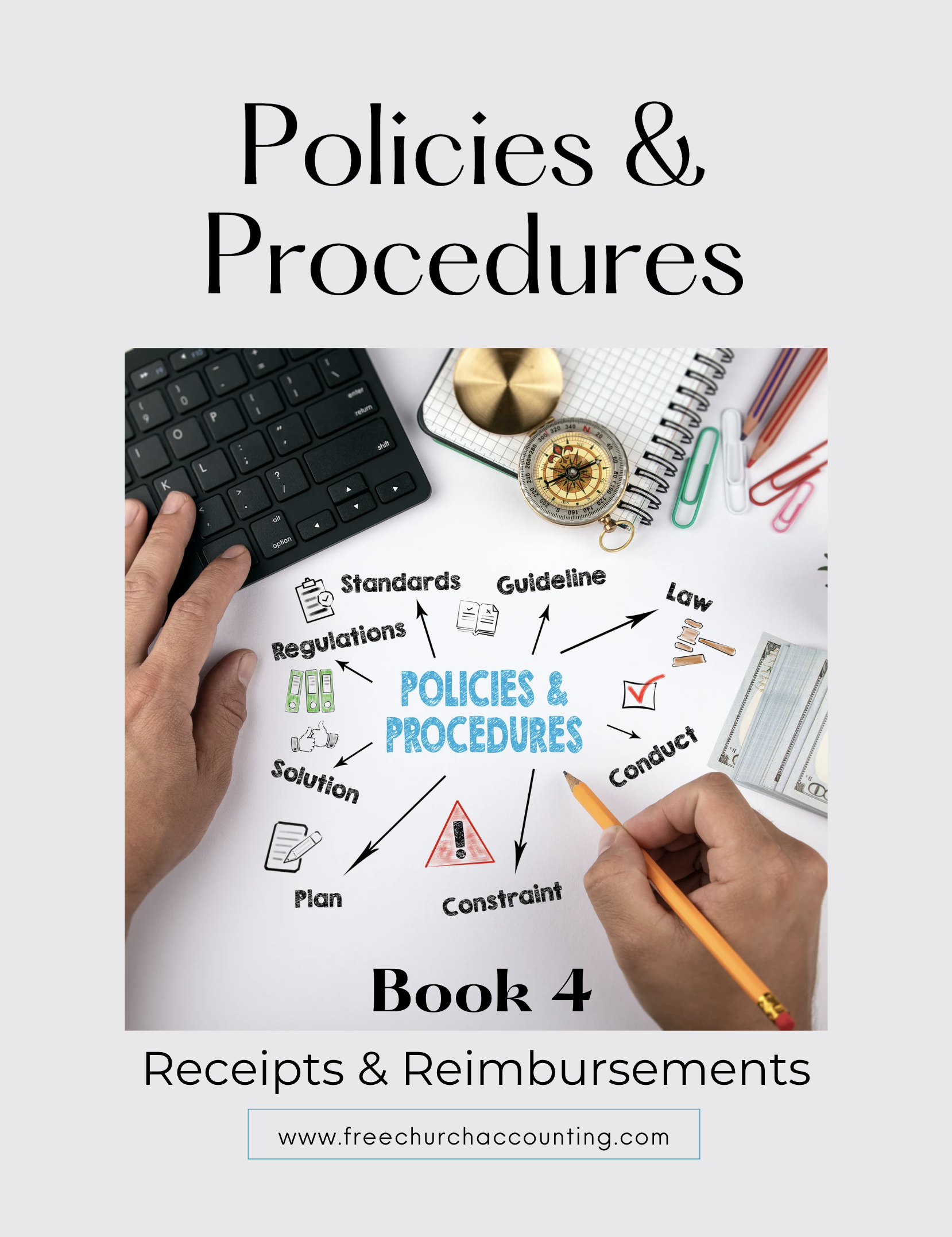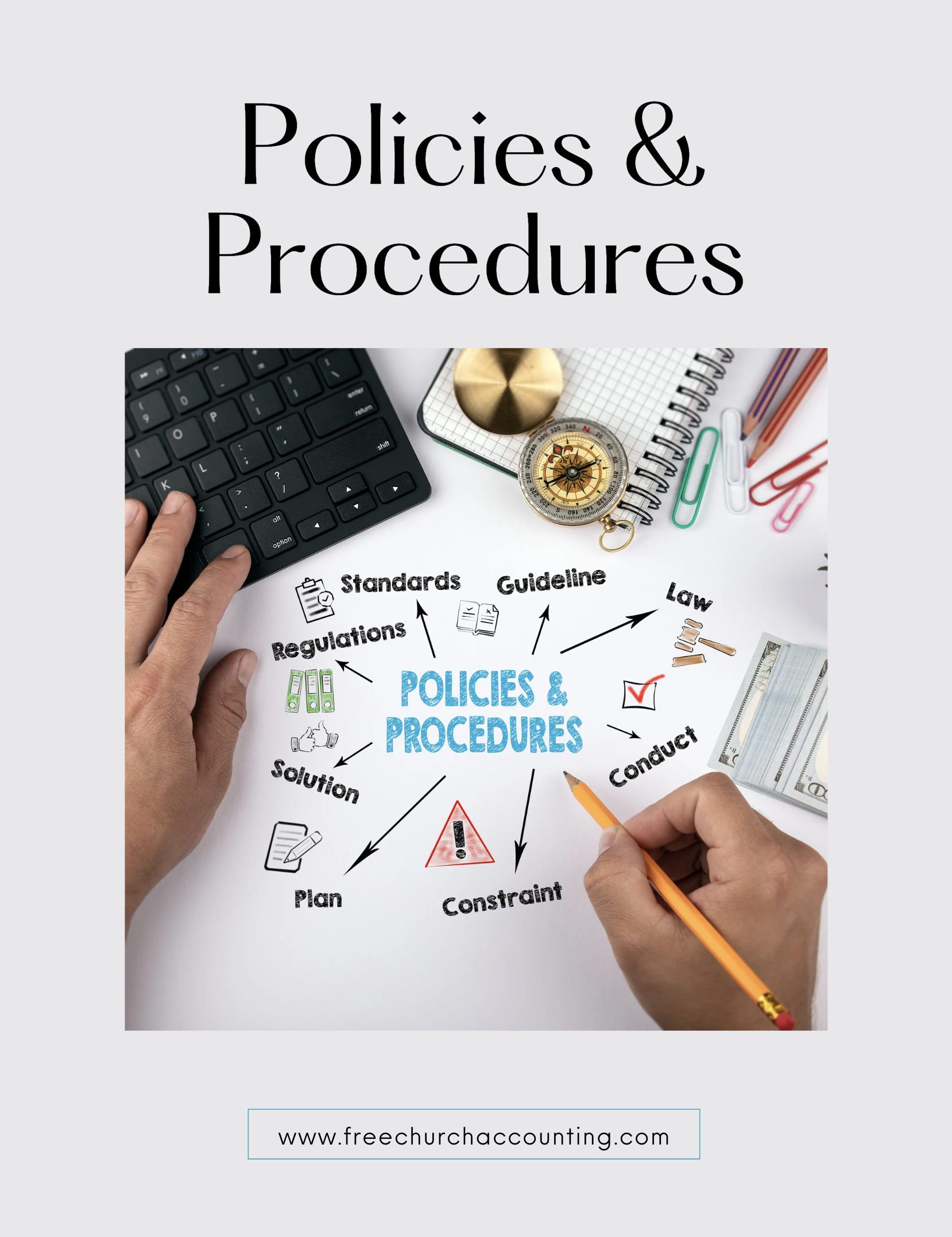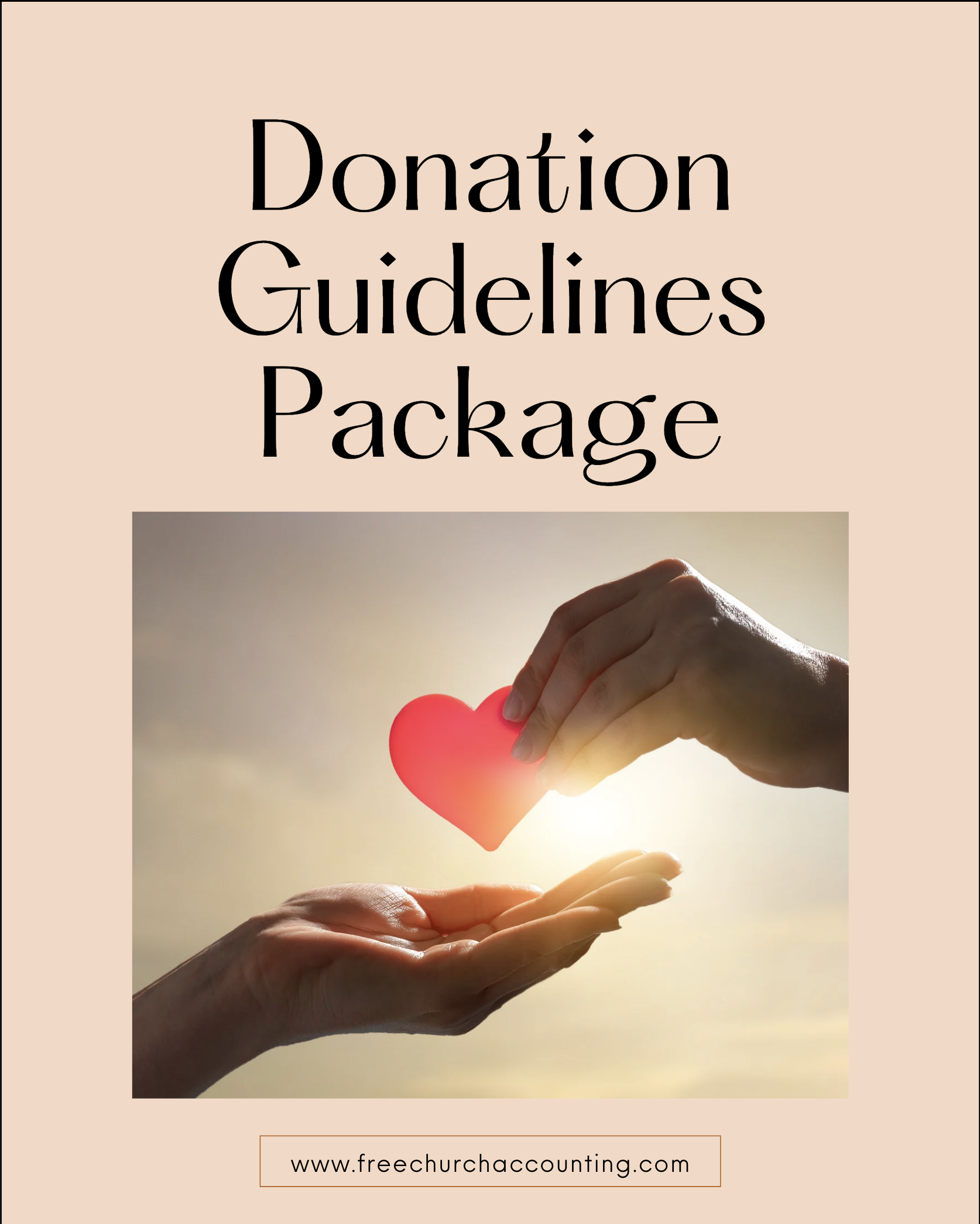Annual To Do List for December and January
Here’s a To Do list for churches and nonprofits that you can and should begin tackling immediately. December and January are among the busiest months for church and nonprofit administrators, so take a moment to jot down your checklist now. This will help ensure that you don’t overlook any important tasks that are due before January 31st!

Coupon!
Here is a 10% discount code for all the ebooks, spreadsheets, and packages on this site:
FCA
Note: click on "PACKAGES" in the top navigation bar for a list of all of the ebook and spreadsheet packages on this site!
Year End and First of the Year To Do List
JANUARY 31st: As in previous years, you must provide Form W-2 to employees who worked for you during the past year by Jan 31st.
Important To Do! The transmittal form W-3, which is the cover page for all your W-2s, is also due by the end of January. If you file W-2s electronically, the software you select should automatically create and file a W-3 as well, but always verify this.
If you need to manually complete and file a W-3, here are step by step instructions: How to Complete a W-3 Form
JANUARY 31st: Deliver Form 1099-NEC to individuals you paid $600 or more last year for services provided to your church or nonprofit. This form must be filed and given to recipients by January 31st.
NOTE: The 1099-MISC is due on February 28 if filed on paper or March 31 if filed electronically.
The Church Accounting: How To Guide devotes a whole section of the book to payroll for churches. It covers payroll terminology and forms and then takes you through the steps necessary to set up a payroll, calculate and file the necessary taxes and forms, and even details how to handle the minister's payroll. It also includes sections on filling out IRS forms: 1099-Misc, 1099-NEC, and 1096.
If you have QuickBooks or are considering using it in the future, go ahead and purchase the QuickBooks for Churches and the How To Guide combo for a complete package on setting up and administering a payroll using QuickBooks.
Note this very important to do! The start of the year is an ideal time to assess whether your workers should be classified as employees or independent contractors.
Penalties for misclassifying a worker as an independent contractor are severe and strictly enforced, so now is a great time to ensure that all your workers are correctly classified. Refer to this article on the Misclassification of Workers.
Tip: A warning sign that may attract the IRS’s attention is an individual receiving only one 1099-NEC from your organization for multiple years.
JANUARY 31st: Distribute annual contribution statements! Keep in mind that a donation is recorded upon receipt, even if the check is dated for the prior year. The only exception is if you receive a donation check in the mail with a date of December 31 or earlier on both the check and the envelope.
Additionally, ensure you know which "donations" to include in that statement by reading this article on when to issue giving receipts and when not to: Issuing Contribution Receipts!
DECEMBER 31: Review and approve your pastor's compensation package. Refer to this Year-End Checklist for additional to do items and key factors to consider when evaluating or establishing this package.
Examine and adjust your minister's housing allowance. Even if a housing allowance is already in place, it is essential to review and modify it, if necessary, before the year's end. Refer to this article on housing allowance tips.
DECEMBER 31: Regardless of the time of year, if you haven’t established an Accountable Reimbursement Plan, NOW is the time to do so!
With the new tax laws and the elimination of employees' and ministers' ability to claim unreimbursed employee "business expenses," having an Accountable Reimbursement Plan is crucial. Even if you do not reimburse employees for expenses, it is advisable to have an accountable reimbursement policy in place for employees using the church or nonprofit's credit or debit cards. Refer to this article on Accountable Reimbursement Plan Guidelines!
The Policies and Procedures Package includes an ebook on Receipts and Reimbursements that explores the management of receipts and supporting documents.
Additionally, it provides insights on establishing and managing an efficient accountable reimbursement policy.
Includes a sample of a resolution you can use to present to the board to set up and approve an accountable reimbursement plan.
.
This ebook is included in the Policies and Procedures Package. However, you can purchase it by itself for only $7.95 by clicking the ADD TO CART button below!
The Receipts and Reimbursements ebook is also part of a larger "Policies and Procedures" Package" that is packed full of valuable information and for a limited time you can purchase all 5 ebooks and 8 policy templates for only $32.80
Due Dates in your To Do List


January 15:
Ministers--your estimated taxes are due for the fourth quarter (Oct – Dec) of last year. You can usually skip this fourth quarter payment if you intend to file your return and pay all the taxes due by January 31.
January 31:
Remember to submit your federal payroll tax report (Form 941) and your state's employer payroll tax quarterly report, if applicable. Be aware that some state employer forms may have earlier deadlines than the 941, so it's essential to check with your state's tax commission to find out if and when your state quarterly report is due. Refer to this article on Payroll Tax Forms: Form 941
January 31:
Send annual contribution statements to your donors by January 31 or earlier. It's essential to inform your donors that they should not file their federal income tax returns until they receive written confirmation of their contributions from the church, especially if they intend to claim tax deductions for charitable contributions.
To help with this, add a reminder to your December to-do list to post a notice on the bulletin board advising donors not to file their personal income tax returns until they receive their annual giving statement if they plan to claim charitable deductions.
Additionally, consider informing your donors through letters, including a notice in your December newsletter, or posting information on your website, among other methods. Refer to this article on Handling Contributions.
Donation Guidelines Package
A set of 4 ebook packages that covers many of the following topics...
- How to handle and receipt stock donations
- How to handle free rent and labor donations
- How to handle non-cash contributions
- What to do if you receive a DAF (donor advised fund) contribution or grant
- How to handle Quid Pro Quo donations and other fundraising income such as drawings and raffles
- Donation policies and procedures
- Much more - Click here for details
Additional To Do Tasks

Year-End Financial Review: Conduct a thorough review of your financial statements to ensure everything aligns and is accurate. This includes making sure all donations are recorded and acknowledged for tax purposes.
Tax Preparation: Nonprofits that are required to file 990s should start preparing documents for tax season. Ensure all necessary forms are ready and set appointments with your accountant or CPA if needed.
Annual Report Preparation: Begin drafting your annual report, highlighting key achievements, financial summaries, and future goals. This is crucial for transparency and engaging with your supporters.
Budget Planning for Next Year: Start drafting your budget for the coming year. Consider any new initiatives or programs you'd like to introduce and allocate resources accordingly.
Managing bookkeeping for churches can present unique challenges. Apart from standard accounting procedures, there is the additional task of managing restricted funds alongside the overall financial records.
You might be facing a chart of accounts overloaded with numerous unnecessary accounts from past volunteers. On top of that, you've come across errors in your payroll entries. These ebooks on church bookkeeping are specifically designed to assist you in handling these issues effectively.
Description page for the ebooks and bonuses included in the Bookkeeping for Churches Package

Volunteer Appreciation: Plan a volunteer appreciation event or send personalized thank-you notes to those who have supported your organization throughout the year. However, refer to this article on staff and volunteers gifts to ensure tax compliance: Volunteer and Staff Gifts Tax Consequences
Event Planning: If you have any upcoming events, now is the time to finalize details, confirm venues, and ensure you have all necessary materials and permissions.
Outreach and Engagement Strategy: Evaluate and enhance your outreach strategies. Plan campaigns to engage your community and increase participation in your programs.
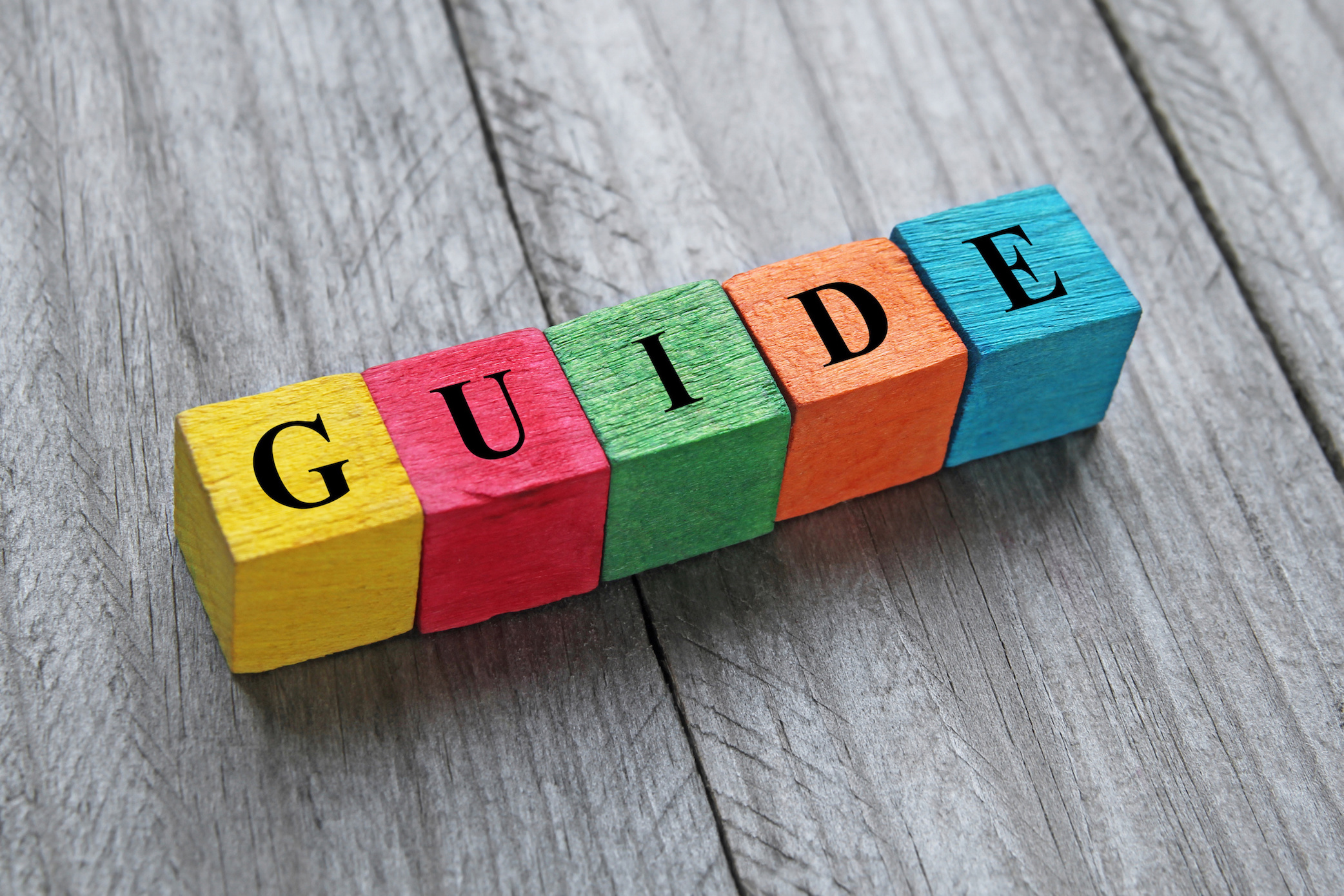
Facility Maintenance and Upgrades: Assess your facilities for any needed repairs or upgrades to ensure they are ready for the new year.
Staff and Leadership Evaluations: Conduct evaluations to provide feedback and set goals for the coming year. This is also a good time to discuss professional development opportunities.
Policy Review and Updates: Review your current policies and procedures to ensure they are up-to-date and compliant with any new regulations or laws.
By tackling these tasks with diligence, your church or nonprofit can enter the new year organized, prepared, and ready to continue making a positive impact in your community.
Church Accounting Package
A set of 2 ebook packages that covers the following topics...
- Fund accounting examples and explanations
- Difference between unrestricted and restricted funds
- Best methods for tracking restrictive funds
- Explanations and examples of financial statements for churches and nonprofits
- Minister compensation and taxes
- Payroll accounting and its complexities
- Much more - Click here for details
